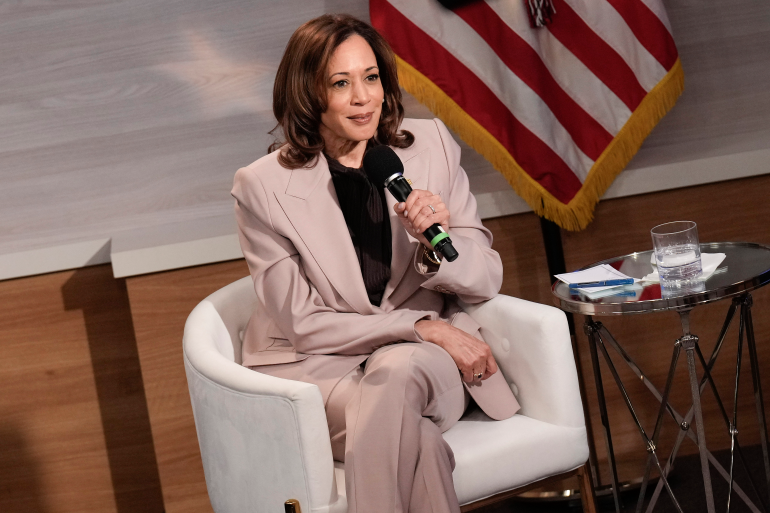By Curtis Bunn
Vice President Kamala Harris took questions from a panel of members of the National Association of Black Journalists on Tuesday, with some moments turning tense as she outlined her vision for her administration if she wins the election in November.
Over 45 minutes, Harris spoke about a number of policies, including her economic plan, which includes spurring new housing construction through tax credits and offering financial assistance for first-time homebuyers and expanding the child tax credit.
She also spoke forcefully about abortion access in states like Georgia and the sudden scrutiny of Haitian immigrants in Springfield, Ohio, who have been dragged into the debate over immigration policy.
“It’s a crying shame. Literally,” Harris said. “I know that people are deeply troubled by what is happening to that community in Springfield, Ohio, and it’s got to stop.”
Reporters Tonya Mosley of NPR, Gerren Keith Gaynor of TheGrio and Eugene Daniels of Politico repeatedly pressed Harris for direct answers on other topics, interrupting her multiple times when she veered away from the subject or rambled. She dodged a potentially contentious moment when Mosley stopped her during an answer about gun control by laughing through the moment.
The audience of about 150, including 100 college students, began to signal discomfort when Harris avoided answering a question about whether she would issue an executive order to create a commission to study reparations. Ultimately, she said, it would come down to Congress, an answer that seemed to deflate some of the attendees.
Some members of the audience also signaled displeasure when she gave an indirect answer about whether she would continue the Biden administration’s approach to the Israel-Hamas war.
“I absolutely believe that this war has to end, and it has to end as soon as possible, and the way that will be achieved is by getting a hostage deal and the cease-fire deal done, and we are working around the clock to achieve that end,” Harris said.
It was an answer she has given in the past.
“We wanted to ask her questions and get answers that we may not have heard before,” Gaynor said afterward. “We prepared long and hard to present issues she might not have addressed in the past.”
Harris appeared six weeks after former President Donald Trump questioned her ethnicity and clashed with a journalist at the organization’s national convention in Chicago.
Harris declined an invitation from NABJ to attend the August convention because it conflicted with the funeral of Rep. Sheila Jackson Lee, D-Texas.
Some members of NABJ criticized the organization for inviting Trump despite the incendiary comments he has made about Black people and other ethnic groups over the years.
“NABJ does not endorse political candidates as a journalism organization,” NABJ President Ken Lemon said in a statement last week. “Just as we demonstrated during our convention interview with former President Trump, this event will not be a campaign rally but will be handled with respect to journalistic principles.”
During the interview at the convention, Trump attacked ABC News reporter Rachel Scott, calling her first question — which noted several hostile things he has said about Black people and women — “nasty.”
He later claimed he was the best president for Black people since Abraham Lincoln and questioned Harris’ heritage. “I didn’t know she was Black until a number of years ago when she happened to turn Black, and now she wants to be known as Black,” Trump said, drawing gasps. “So, I don’t know, is she Indian or is she Black?”

